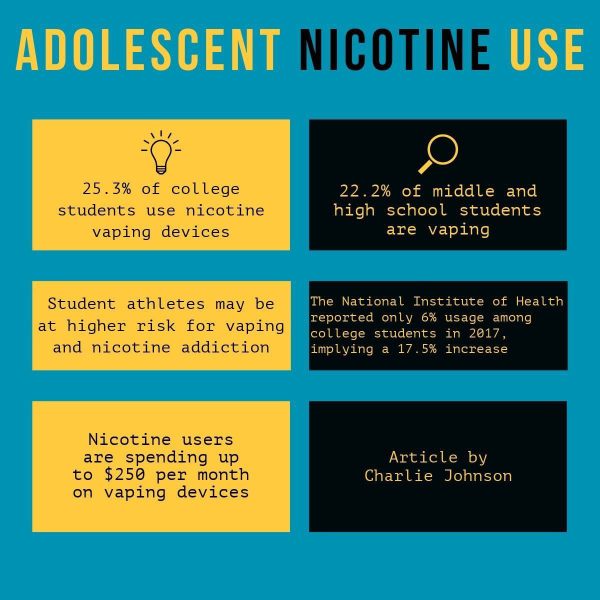ASCLUG works to allow alcohol on campus next spring
September 20, 2021
California Lutheran University’s alcohol policy will undergo review in the following months for a potential change that would allow students to drink on campus if they are over the age of 21 in the upcoming spring semester.
Associated Students of California Lutheran University Government President Josh Gatison thinks this timeline is completely manageable.
“We are working to try and get it going by January 2022,” Gatison said in an in-person interview.
The policy, which currently does not allow for the consumption or possession of alcohol in any capacity on campus, was brought to Gatison’s desk last year to review.
He said extensive research was done on other universities that have changed their schools protocols in regards to alcohol.
“They have systems in place that make it manageable and make it a system that gives students the responsibility to take care of themselves, while also trusting that they won’t be over drinking or mishandling anything,” Gatison said.
Cal Lutheran is one of the few schools that is part of the Evangelical Lutheran Colleges of America (ELCA) that does not allow students to have alcohol on campus.
Director of Residence Life and Student Conduct Chris Paul said in an email interview that while some of the institutions they researched were ELCA affiliated, others were not.
“This research gave us a good idea of what we wanted to include in our policy and some considerations for implementation,” Paul said.
Some of these considerations include the safest and most effective ways to determine which students are within the new policies jurisdictions.
David Hilke, director of Campus Safety, said they are looking into different forms of identification.
“Campus Safety is exploring the option of altering our existing student ID template for students that are over the age of 21,” Hilke said in an email interview.
He also said university personnel will have access to student records to allow for the verification of students’ ages to be quick and effective. It will also minimize the amount of potential mistakes that could be made.
Gatison said that assuring that resident assistants in each hall are up to date with the change to policies as they are being implemented was one of the many details discussed in board meetings.
It is not yet clear whether or not all residence halls will be included in the change.
Campus safety reserves the right to prohibit alcohol from being consumed in certain residence halls, should the policy be approved, Hilke said.
One of the major topics of conversation was making sure that students living with people who are not yet of legal drinking age were not excluded from the new policy, Gatison said.
“We do want students to feel safe and we don’t want them having to go out multiple times to pick up alcohol or really put themselves in any sort of dangerous situation,” Gatison said.
He also said it was determined that the limits would be set by person, not by room. While there is not yet a set limit on an amount of alcohol, one can be expected as the policy continues review.
“We definitely don’t want people over drinking or binge drinking,” Gatison said.
Details of alcohol limits, resident hall exclusions and processes of identification are still being determined.











Leilani Horowitz • Sep 22, 2021 at 4:59 pm
A big reason I chose Cal Lutheran is because of the substance ban. I feel that it makes a safer environment on campus for all students. I have roommates who are of drinking age and would not know what to do if they were allowed to drink in my dorm. Allowing alcohol in the dorms will potentially create more distracting study environments, an increase in peer pressure, a bigger divide and more segregation between upper and lower class men, and a lot more confusion about policies. Having roommates who are drinking while others are trying to study is not conducive to successful learning. There is an innate amount of peer pressure that comes from being in a group of friends especially roommates who are drinking and you are not and this is dangerous for students. Upper and lower class men are already rather divided simply by the fact that they are housed on opposite sides of the campus. Adding alcohol to campus housing for certain people and certain halls will alienate younger students and cause a bigger divide, and restricting alcohol to some dorm halls will create more segregation between those allowed to drink and those not. What will be done to avoid confusion about policies like this where one group is exempt and the other is not? How does setting limits by person work? What happens if an underage student is caught in a room with alcohol that isn’t theirs? Overall, the proposed lift on the alcohol ban is just too intricately complicated to be effective or worth it and it will just end up being a detriment to students and the school. There are far bigger issues that are actual problems that the student government should be tackling.
Anonymous Student Fearing Retribution From Ungrateful Student Body • Sep 21, 2021 at 10:50 am
It saddens me that the ACLUG would pursue on-campus drinking as an item worthwhile to student wellbeing. It seems immature. From what I hear on-campus drinking will lead to anything positive other than allowing some kids to feel like they got the college experience and prevent some of the kids who already shirk the policy to stop getting written up. If people are already shirking a hardliner policy what is to say people won’t shirk your alcohol policy regarding consumption. It is much easier to enforce all or none rather than to say a little bit. Such ambiguity leads to interpretation which leads to a lack of any form of regulation whatsoever. This policy proposal seems so blind to the ramifications of allowing a drinking culture to pervade Cal Lutheran. On-campus drinking does nothing to help out our population of commuter students, except making it more likely that they’ll get in a drunk driving accident on the way home. This does nothing for residents accept make it more likely something will happen to someone perpetuated by somebody under the influence and let them feel like they had a college experiences. If drinking happens uninhibited in the dorms who’s to say that conflicts between roommates aren’t to be exacerbated by the presence of alcohol in dorms. If any our students have every felt unsafe at night, a policy like this makes it even more dangerous. Rather than some crazy outsider or a creepy car driving by you now can fear a new population, our own hammered students. I’d much rather time would be better spent making the campus safer for our students by installing lights and updating security infrastructure or creating an on-campus brigade of students who are paid to give rides on and off campus.